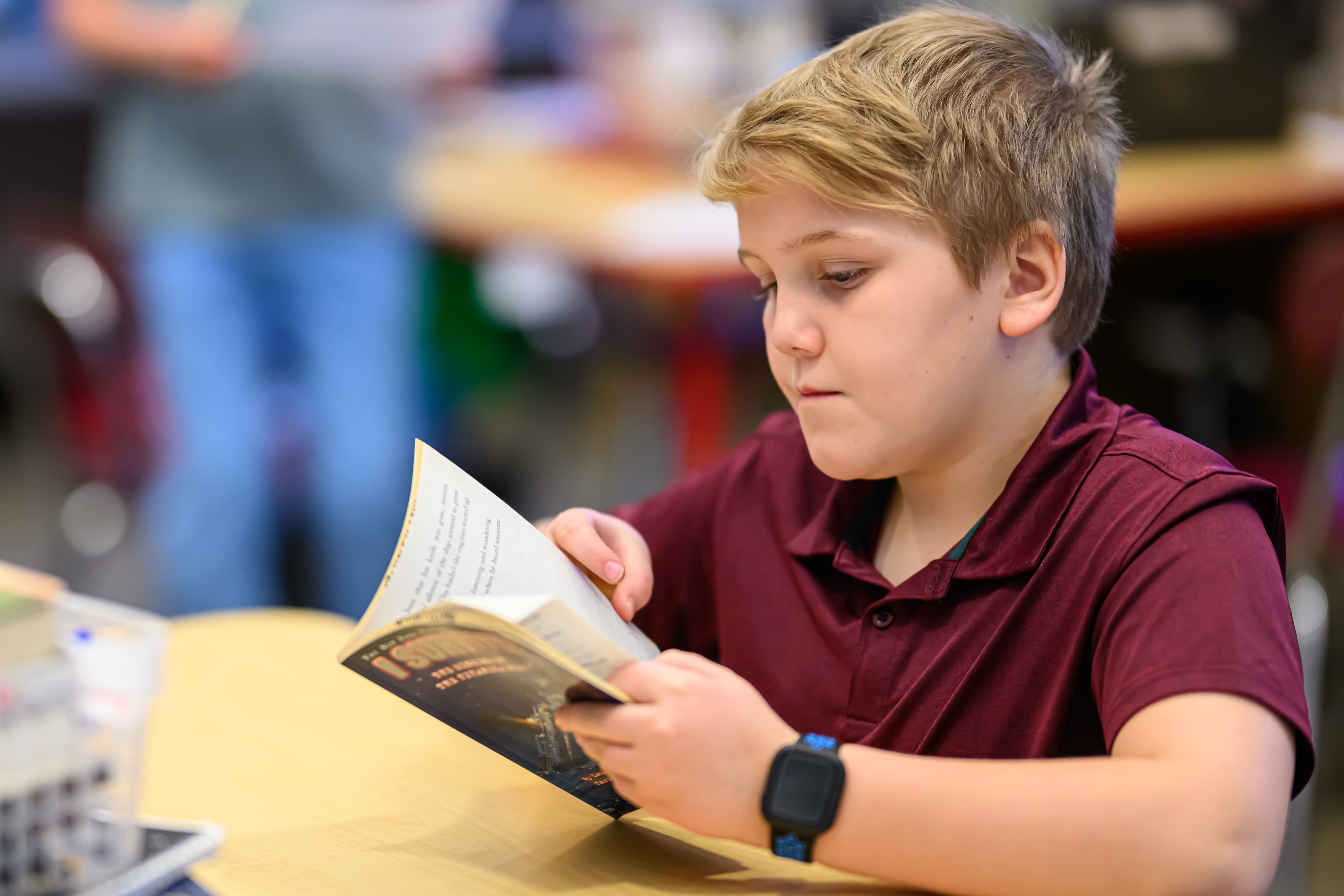There is a natural crescendo of any school year that typically culminates with a finale of tests, projects, events, and celebrations. Children (and parents) often crave rest and relaxation after the last bell rings. Whether students have been studying language development in Pre-K, or global citizenship in middle school, it is undoubtedly important to take a break from the academic rigors of the school year.
But how can parents ensure that their children stay sharp during the summer months, particularly when American reading and math scores remain stagnant? When the weather gets warmer and school becomes a hazy memory it’s not always easy, but it’s important to stimulate young brains continually. Researchers believe that reading at least four books during the summer can help stave off learning loss.

Here are three questions you can ask yourself when developing a plan to engage your young learner in reading this summer:
What is the ‘Summer Slide’?
According to Scholastic, researchers have been observing this phenomenon since 1996 when they first noticed it. In 2020, researchers found that students grades 3-5 can lose 20-27 percent of their school gains over the summer.
So, what is it? It’s not just a clever term for the loss of skills when school is out of session. Research and data suggest that it’s a challenge many elementary school-aged children face, and boys tend to fare worse than girls. The Scholastic study indicates that “enjoyment of summer reading is highest among younger children and girls, dropping as age increases and among boys.”

According to an earlier study published by the RAND Corporation, elementary students’ skills and knowledge often deteriorate during the summer months. Their study states that, upon returning to school in the fall, the average student performed approximately one month behind where they performed in the spring, indicating that “summer vacation may have detrimental learning effects for many students.”
How can parents help?
Most parents look to their children’s schools for information about summer reading. In addition to soliciting recommendations from your child’s teachers and librarians, local libraries can also prove to be a helpful way to supplement summer reading lists.
Why is student choice so important?
At Fessenden, students are allowed to—and encouraged to—select their own summer reading books. With three division-specific librarians, a diverse range of suggestions is available to students in each grade. According to Emmanuella Desir-Norris, Lower School Librarian at Fessenden, “We believe boys need choice in their reading lives. That’s why students in each grade have the ability to make personal selections in their summer reading lists.”
Each division has different expectations; however, everyone may choose their own books to read. The only caveat is that the book choices must come from one of the School’s lists. If a child finds a series on one of the lists that he is enjoying, he may read all of his required reading from that series.
This mirrors Fessenden’s philosophy about student choice and developing a love of reading during the academic year. The School's reading curriculum is designed to increase opportunities for students to make their own book selections. Two of the most notable outcomes of the new curriculum are the number of books boys are reading and the enthusiasm with which they’re approaching their materials. The idea is that students, families, and teachers will witness the same benefits during the summer when a child is enabled to read what sparks their interest or imagination.
Support Summer Reading with Fessenden
At the Fessenden all boys junior boarding school, we support reading at all ages and levels. If you’re looking for a private junior boarding school to support your child with their reading goals, we encourage you to plan a visit to our campus or reach out to us for additional information.
Read On
-1.jpg?width=352&name=Fessenden_102015_5146%20(1)-1.jpg)
The Truth About Academic Redshirting

Boarding School Near Boston: An Academic Experience With the Benefits of Summer Camp

